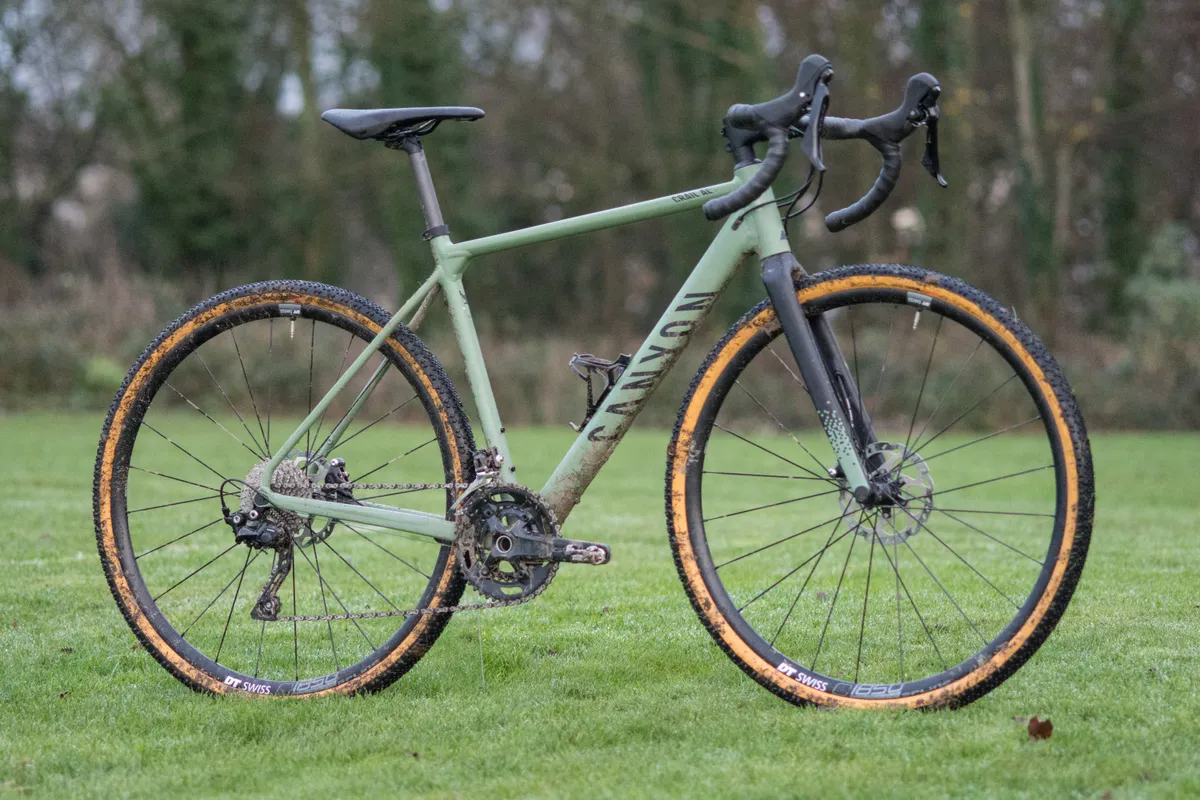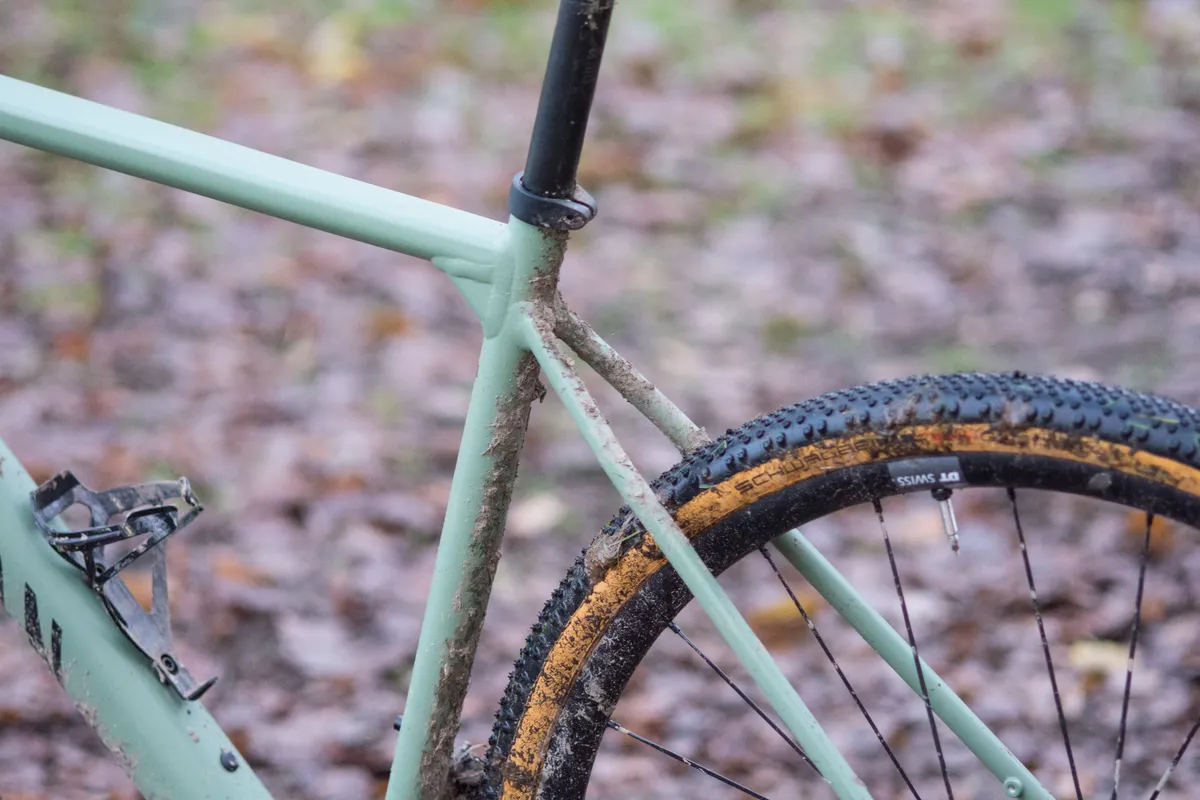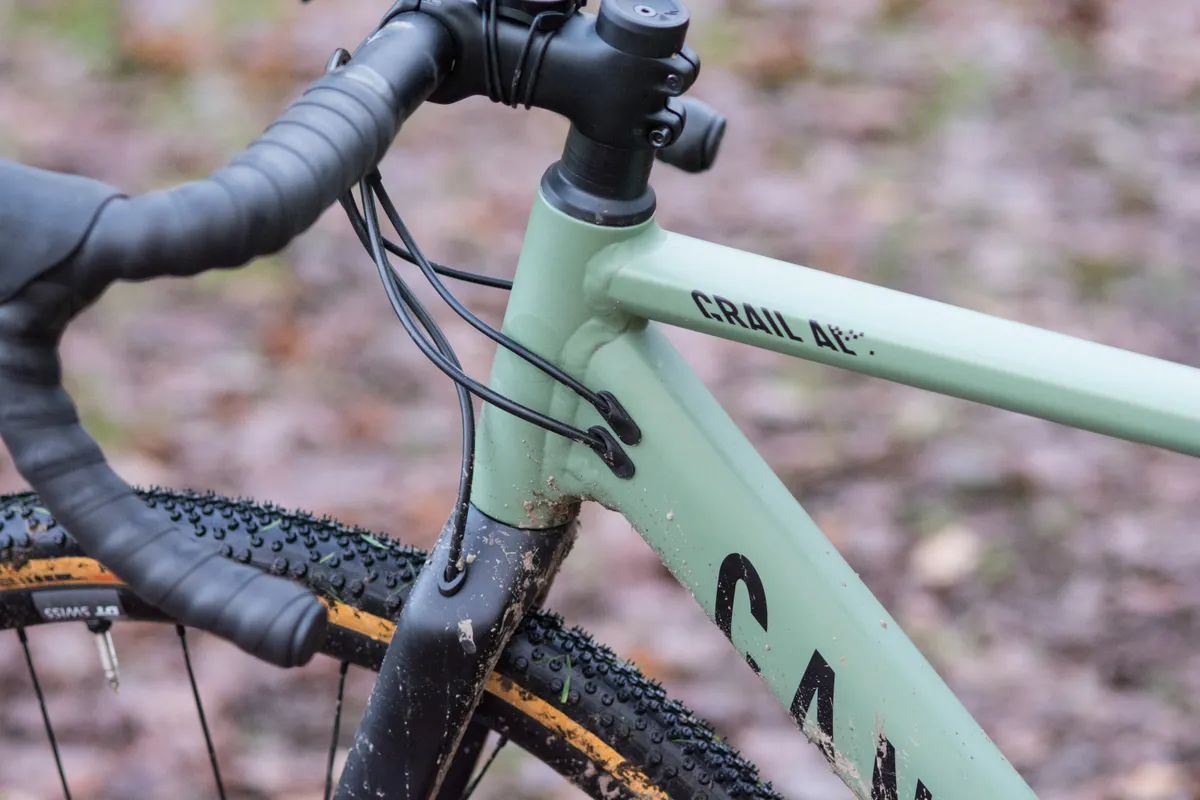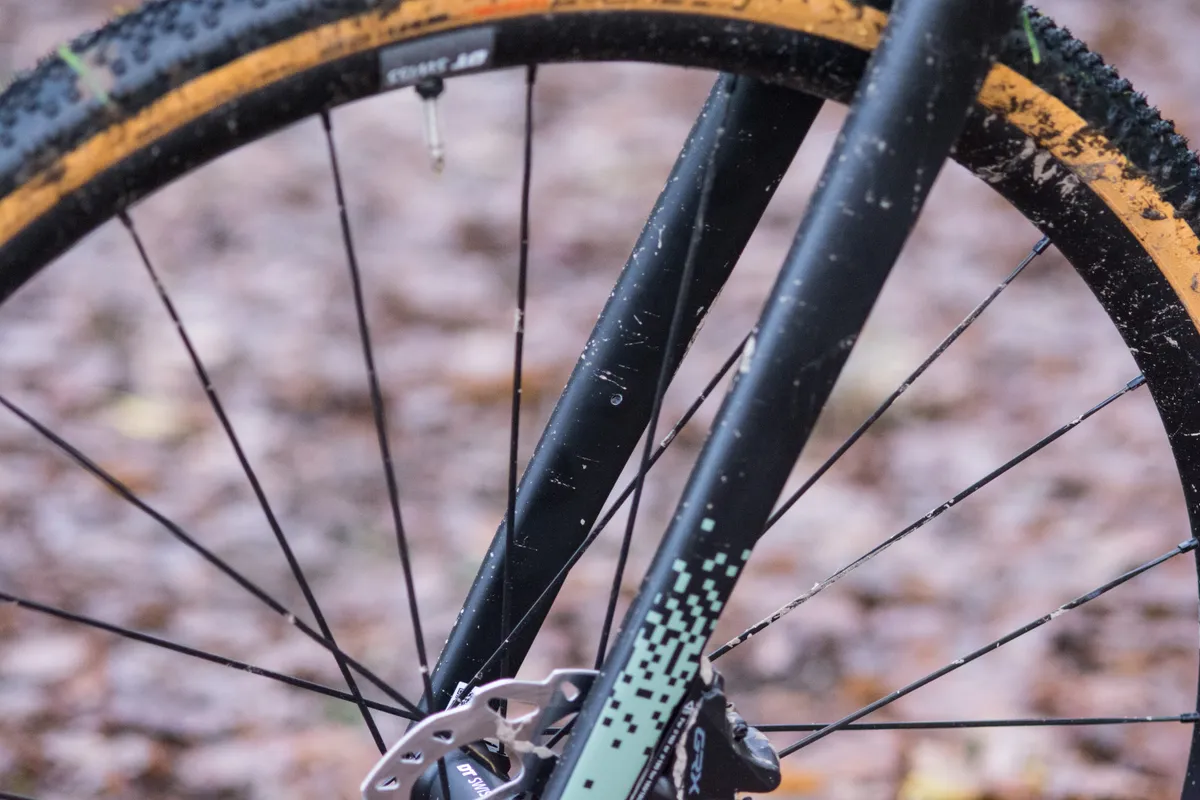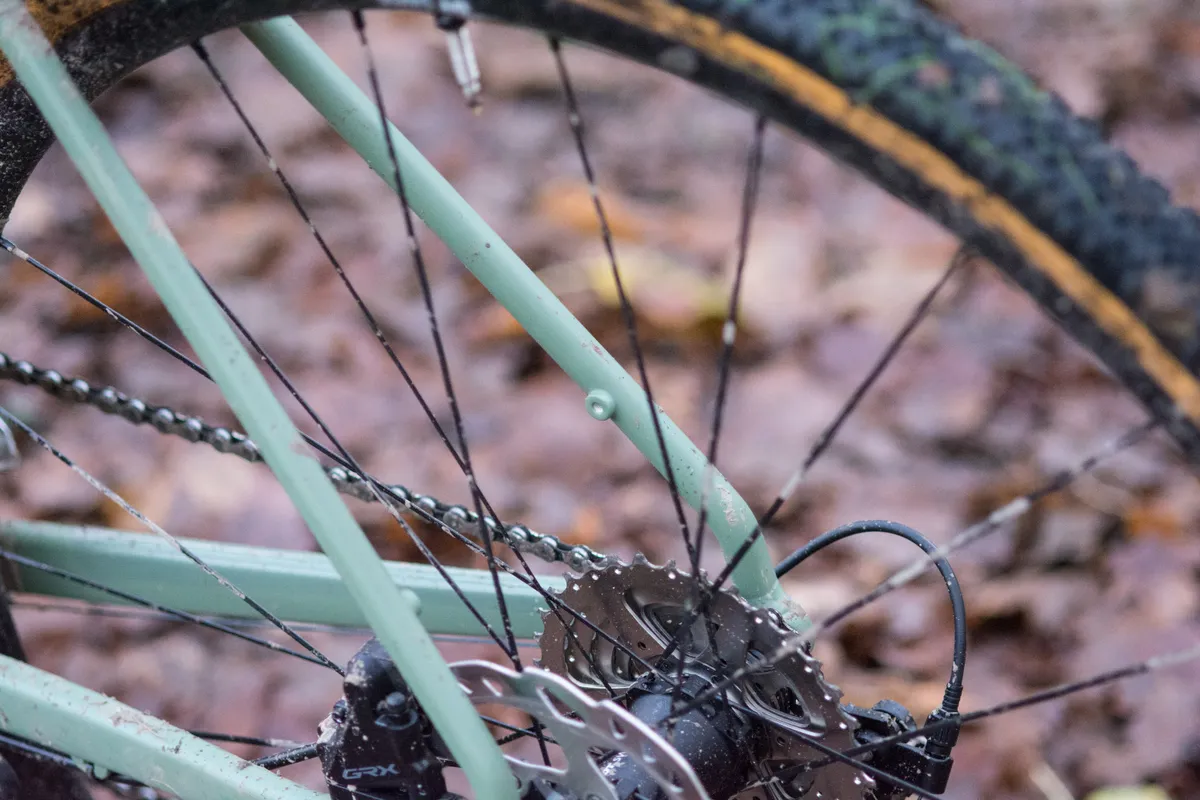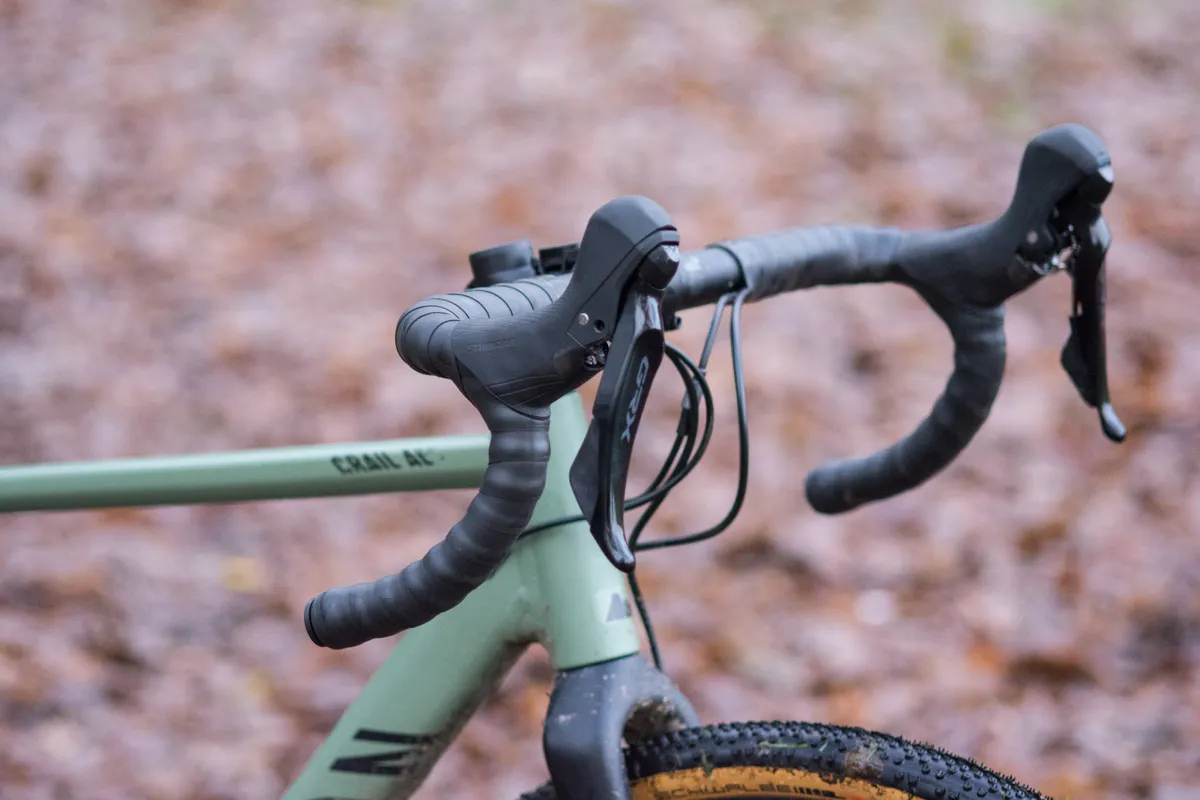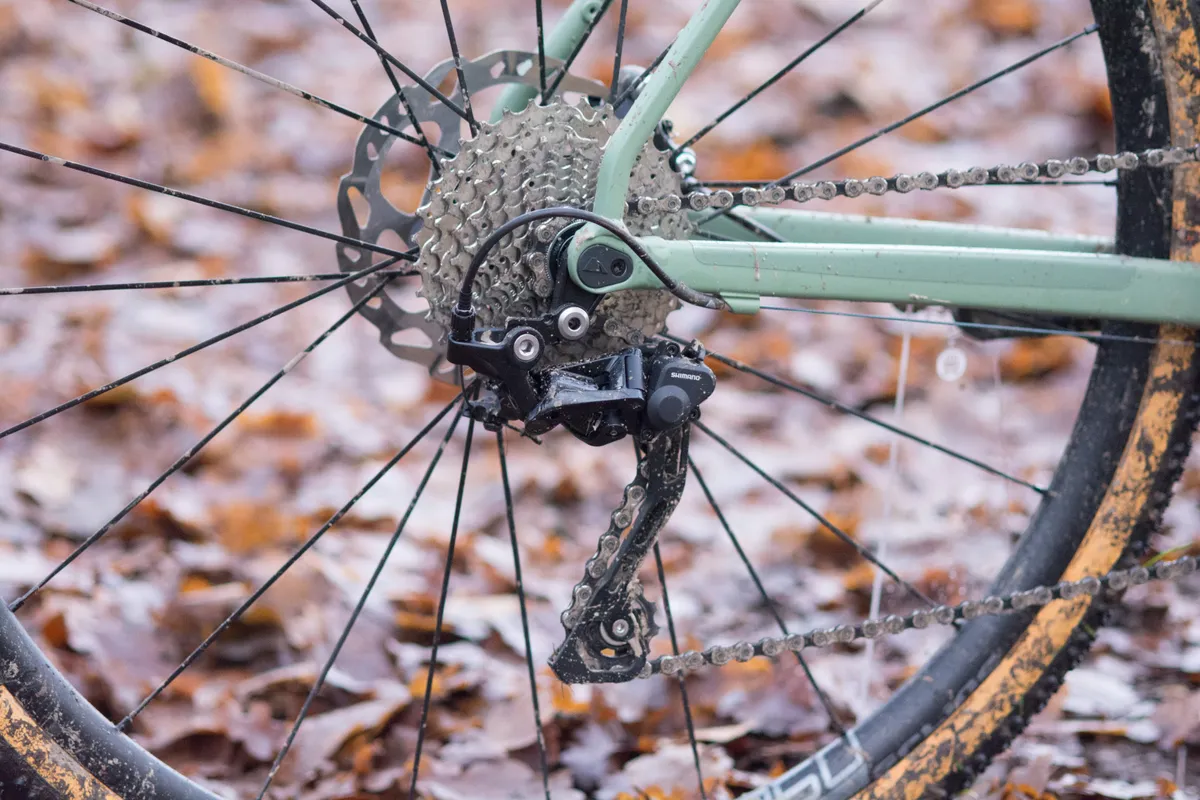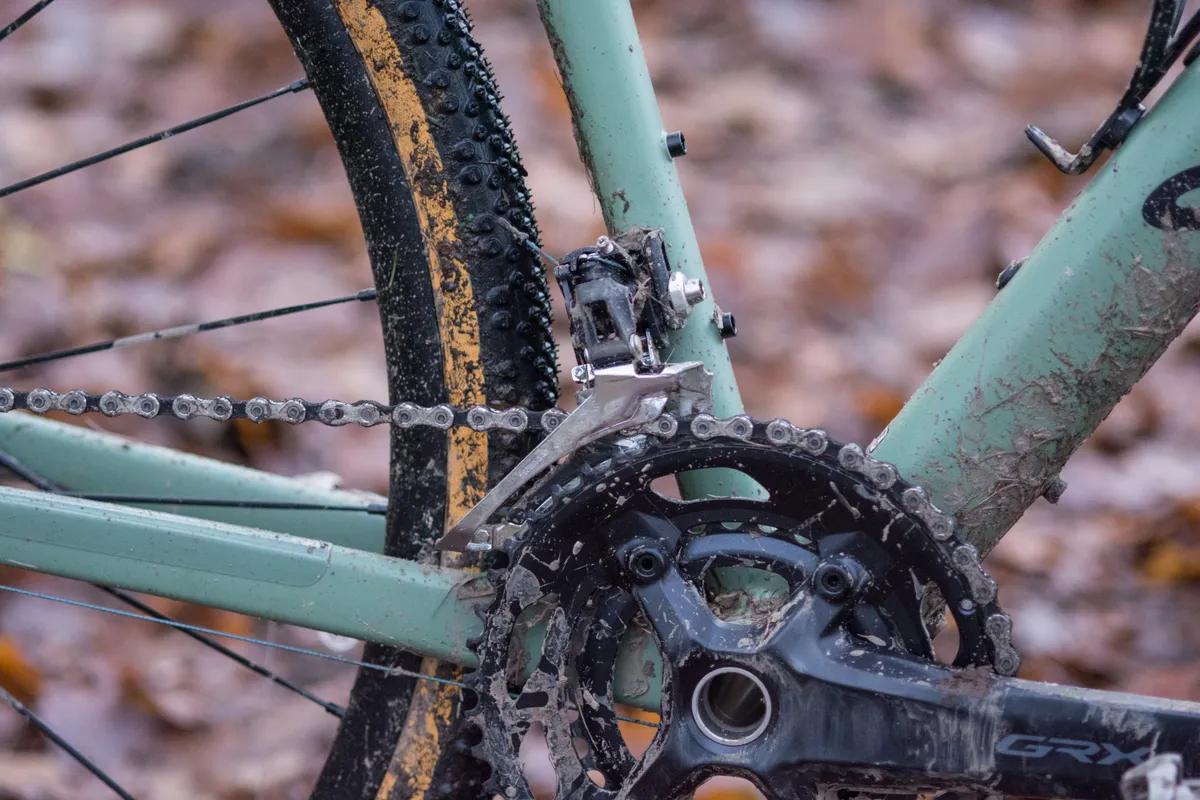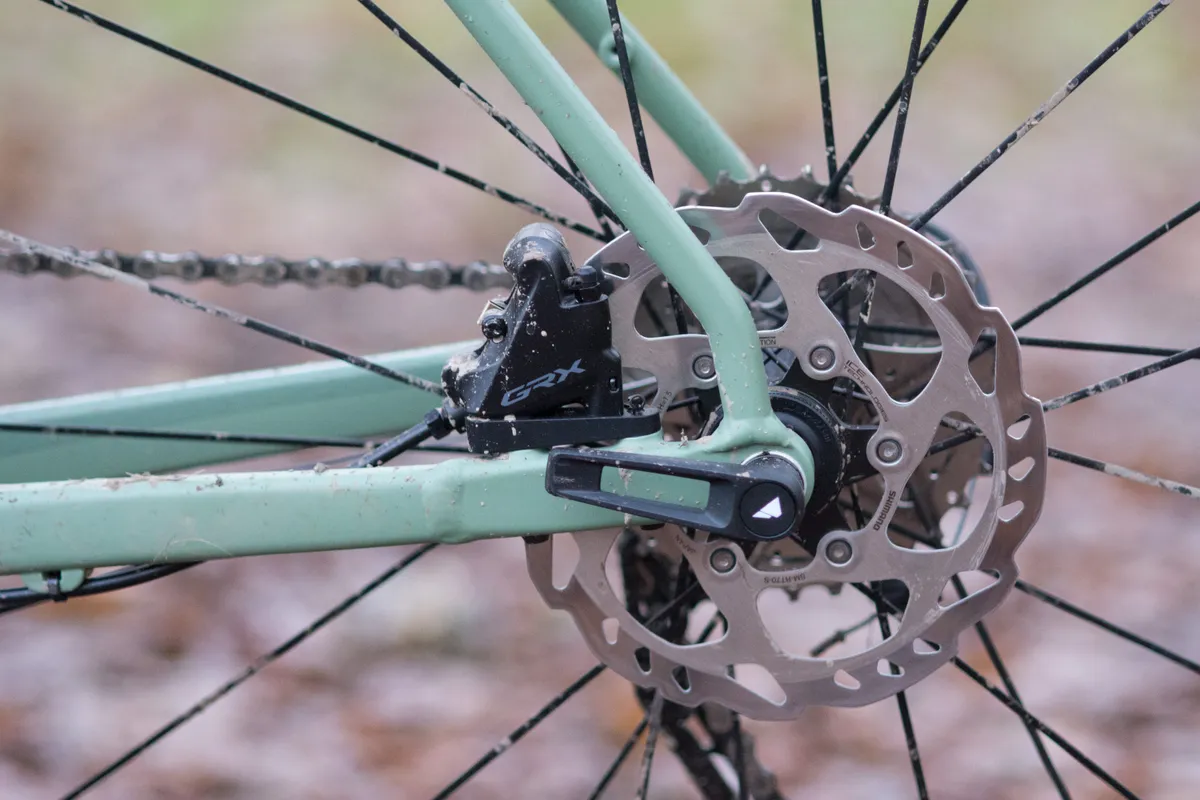The Canyon Grail 6 is an updated version of one of our favourite affordable all-rounders – last year’s model earned four and a half stars and took the ‘Best All-Road’ title in Bike of the Year 2019.
That bike was called the Grail AL and came equipped with more road-oriented groupsets. The latest aluminium Grail loses the AL from its name and is available in just three builds, all with Shimano GRX gravel groupsets.
The Grail 6 is the cheaper model with 2×10 Tiagra/105-equivalent components, priced at £1,499 £1,649. The Grail 7 gets 2×11 105/Ultegra-equivalent parts and costs £1,899 £2,099 while the Grail 7 1by has a 1×11 105/Ultegra-equivalent drivetrain and costs £1,799 £1,999.
Since I wrote this review a few weeks ago, Canyon has upped UK pricing for the Grail range, with the new numbers shown above. With various economic and political factors at play, this is unfortunately consistent with an industry-wide trend.
The Grail was already quite a bit more expensive than its predecessor, but even after the UK price increases it’s still an excellent all-rounder at home both on- and off-road, and one we’d wholeheartedly recommend.
Canyon Grail 6 frameset
Despite the name change and all-new builds, the Grail’s frameset is virtually unchanged save for one small detail – it’s lost its rack mounts.
This seems like a shame because it reduces the bike’s versatility slightly and makes it less appealing as a commuter because fitting panniers isn’t an option without bodging mounts. It likely won’t be a dealbreaker for many riders, though, particularly given the wealth and popularity of bikepacking-style luggage now available.
Fortunately, the mudguard (or fenders, if you prefer) mounts are retained. These accept Canyon’s own dedicated mudguards, but it’s possible to fit aftermarket options too with a bit of creativity and patience. (I know this because I installed a set of older SKS Chromoplastic mudguards on my wife’s Grail AL and it took forever. I needed to buy a set of extra-long stays and some M4 bolts, but it is possible.)
The frame itself is a straightforward aluminium design with lots of straight lines, matched to a full carbon fork. The frame weighs a claimed 1,540g, compared to a claimed 1,020g for the carbon Grail CF.
The frame welds aren’t the prettiest but, in this shade of green, it’s a handsome bike all the same, made more so by the addition of tan-wall tyres.
The cabling is internal, but not fully integrated in the manner we’re now seeing on high-end race bikes.
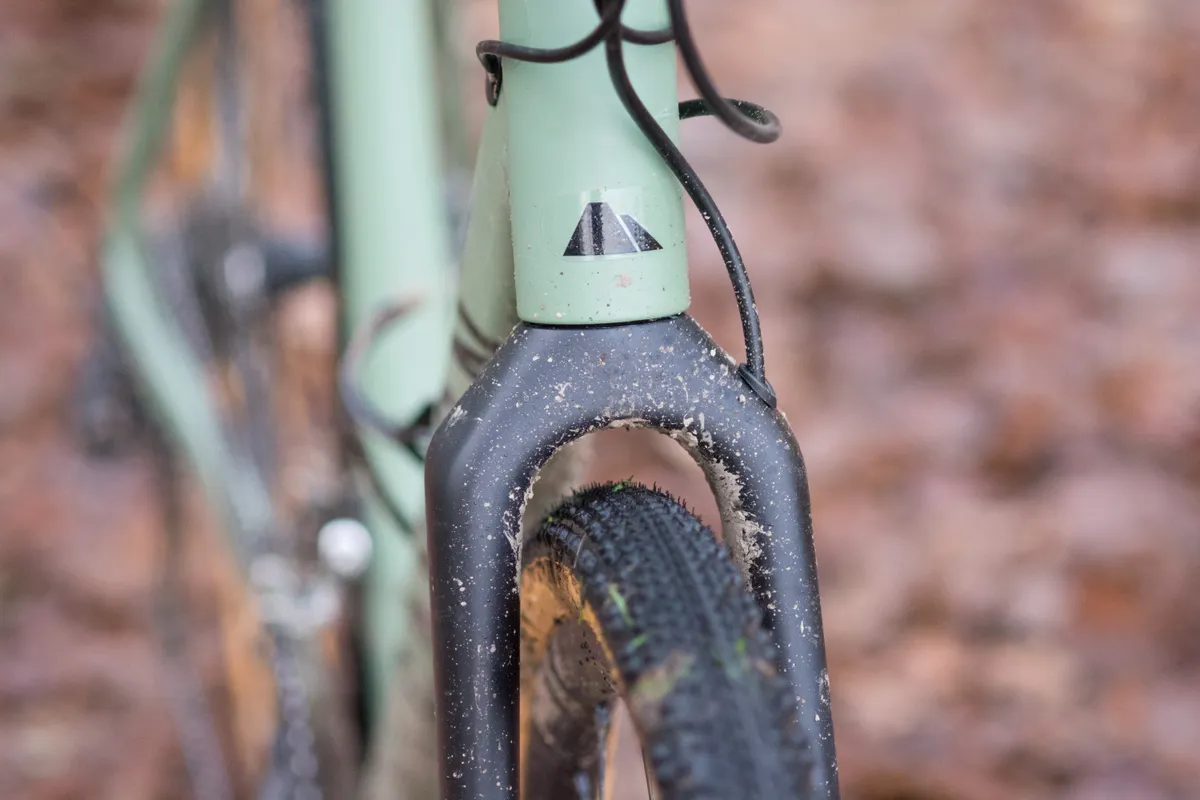
Tyre clearances are generous, with room to spare around the 700×40mm rubber fitted as standard.
Aside from the less common 1 1/4in fork steerer (meaning you’ll have limited aftermarket stem choices – 1 1/8in is the standard size), there’s nothing too proprietary or unusual.
The bottom bracket is a press-fit Shimano unit, the seatpost is a standard 27.2mm round one, the brakes are standard flat-mount calipers, and there are 12mm thru-axles front and rear.
Canyon Grail 6 sizing and geometry
When I reviewed the carbon, double-decker bar-equipped Grail CF I questioned Canyon’s sizing recommendations.
I’m 174cm tall and run my saddle around 71cm to 72cm high. For the Grail 6, Canyon suggests riders between 172cm and 178cm should opt for a size small however, based on my experience with the Grail CF, I requested a medium Grail 6 and I’ve been completely happy with that choice.
While I could certainly ride the small, I’d need a longer stem than Canyon fits as standard and, in any case, the stack of the medium frame suits me better.
At 579mm, it’s pretty middle-of-the-road, similar to many medium endurance road bikes.
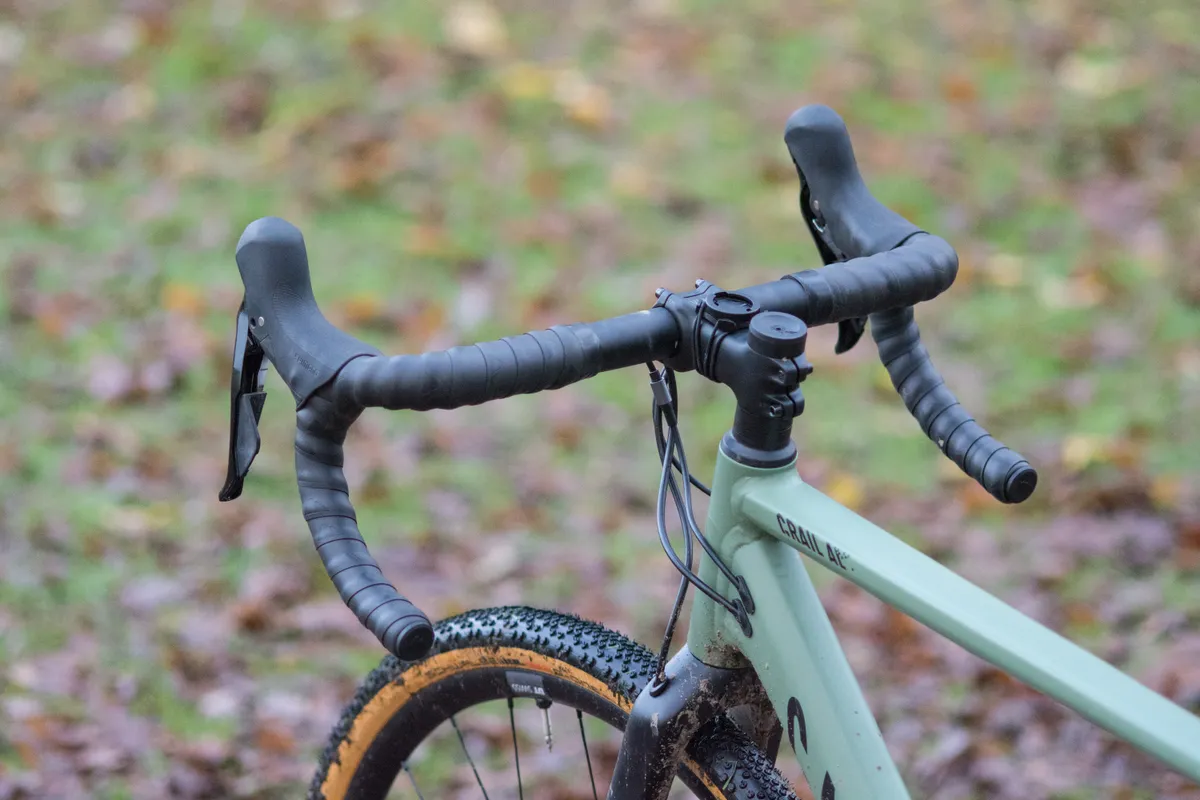
The reach number of 405mm looks immensely long on paper, but when making comparisons with other bikes you need to take into account that Canyon fits relatively short stems across the range. This is in keeping with the mountain bike-esque trend towards longer reach frames with shorter cockpits and wider bars, an approach that yields better off-road handling.
The medium men’s/unisex bike I have here has an 80mm stem, so the effective reach is pretty typical for the size.
I’m not going to say Canyon’s fit recommendations are wrong because plenty of riders are happy with them, but make sure you do your homework on sizing before committing to buy and, if you’re between sizes, I’d suggest going for the larger option.
Otherwise, the Grail’s numbers are relatively road bike-like, without super-slack angles. That long reach goes hand in hand with relatively long wheelbases – the medium’s is 1,035mm – which helps create the necessary tyre and toe – and mudguard, if you’re using them – clearances and helps the bike’s easygoing manners.
The other key thing to note is that the two smallest sizes, 2XS and XS, get smaller 650b wheels, while the rest of the range are 700c.
Canyon’s frames are unisex, but there’s a women’s-specific version of the Grail with slightly different finishing kit and a different paintjob. This comes in sizes from 2XS to M, while the men’s/unisex bike is available from 2XS to 2XL.
Canyon Grail 6 build: 10-speed Shimano GRX
The Grail 6 has a 2×10 Shimano GRX gravel drivetrain and matching hydraulic disc brakes. GRX sits alongside Shimano’s road groupsets and doesn’t offer direct equivalents at every level.
That means the Grail 6 has components that are mostly Tiagra-equivalent, but the RX600-designated crank is nominally 105-level.
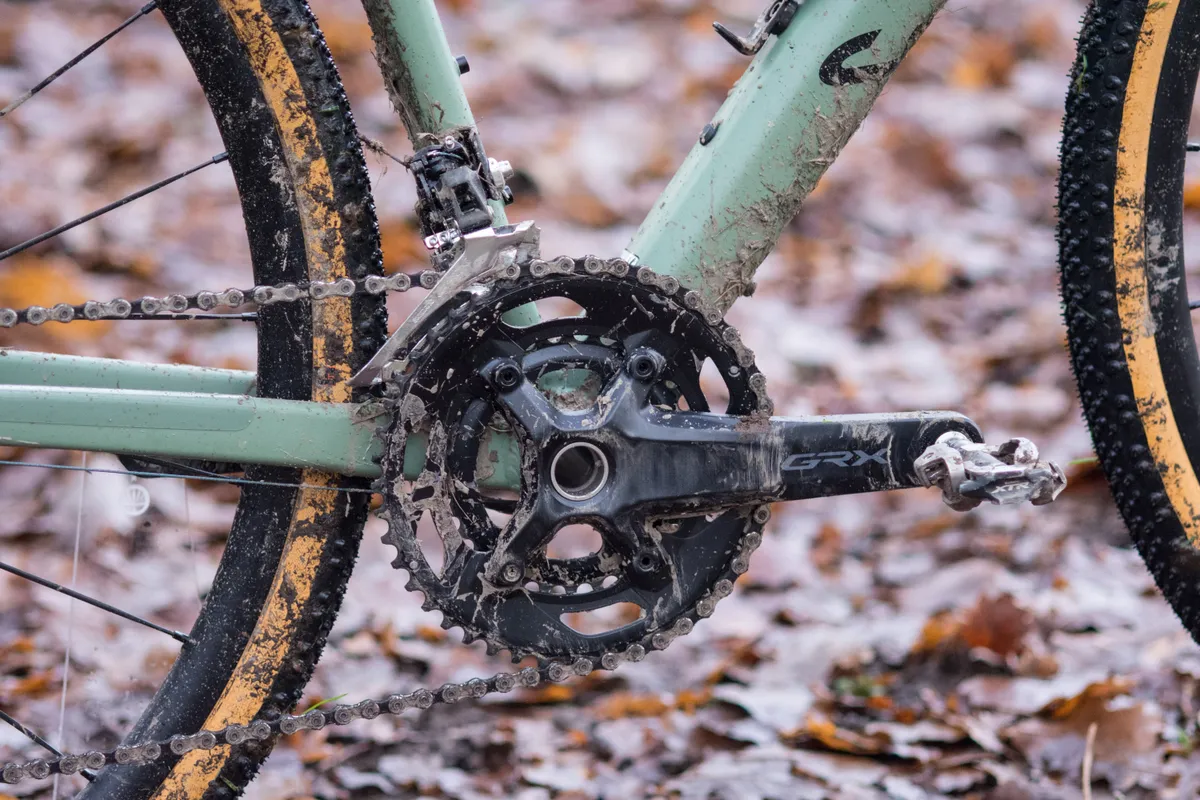
GRX has a clutched rear derailleur and gives you more gravel-friendly (i.e. lower/easier) gearing – 46/30 cranks and an 11-34 cassette here. That’s easily low enough for most gravel riding, and still gives you a reasonably big top end.
If you’re thinking about heavy-duty bikepacking, it’s possible you might want even lower gears.
The Grail 6’s DT Swiss C 1850 Spline db alloy wheelset is one we’re now seeing on numerous bikes and there’s little to complain about.
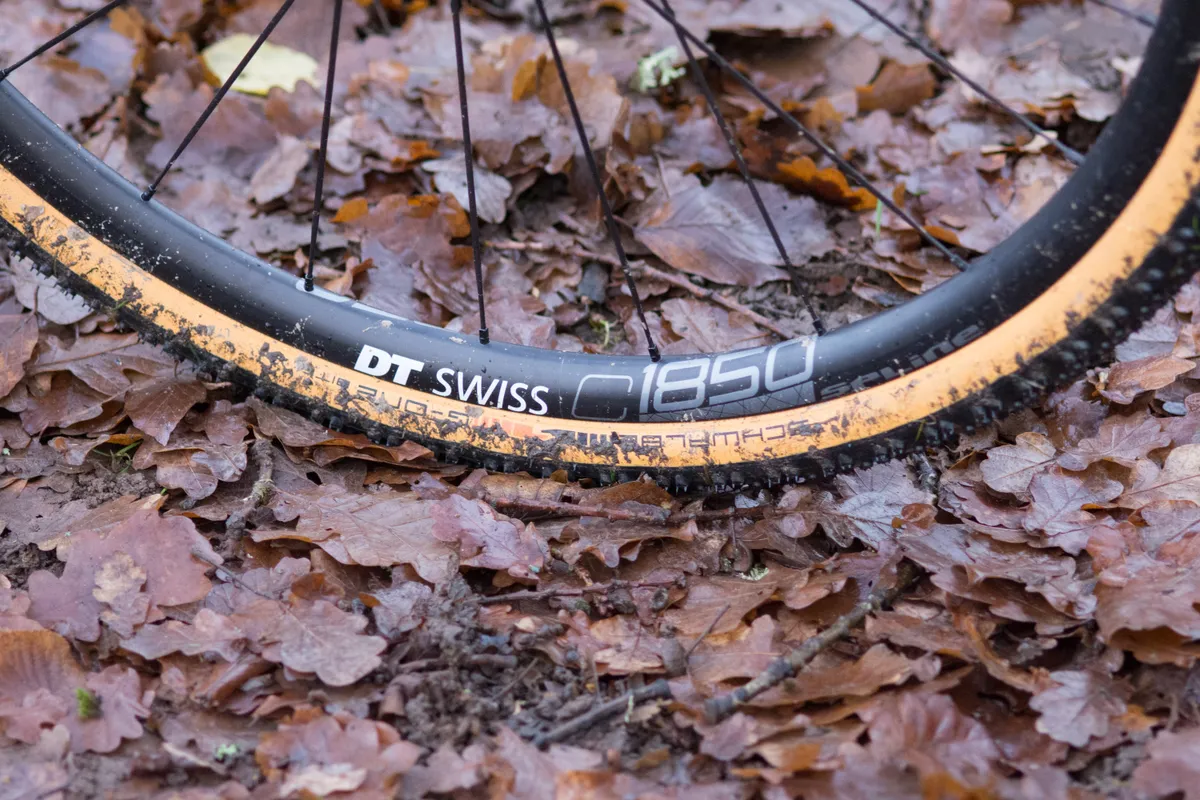
They’re not particularly light at 1,821g claimed for the set, but an internal width of 22mm is well suited to gravel tyres, but not so wide that you can’t also fit more road-oriented rubber if you want to.
Canyon fits these with 40mm Schwalbe G-One Bite tubeless-ready tyres – a good all-rounder.
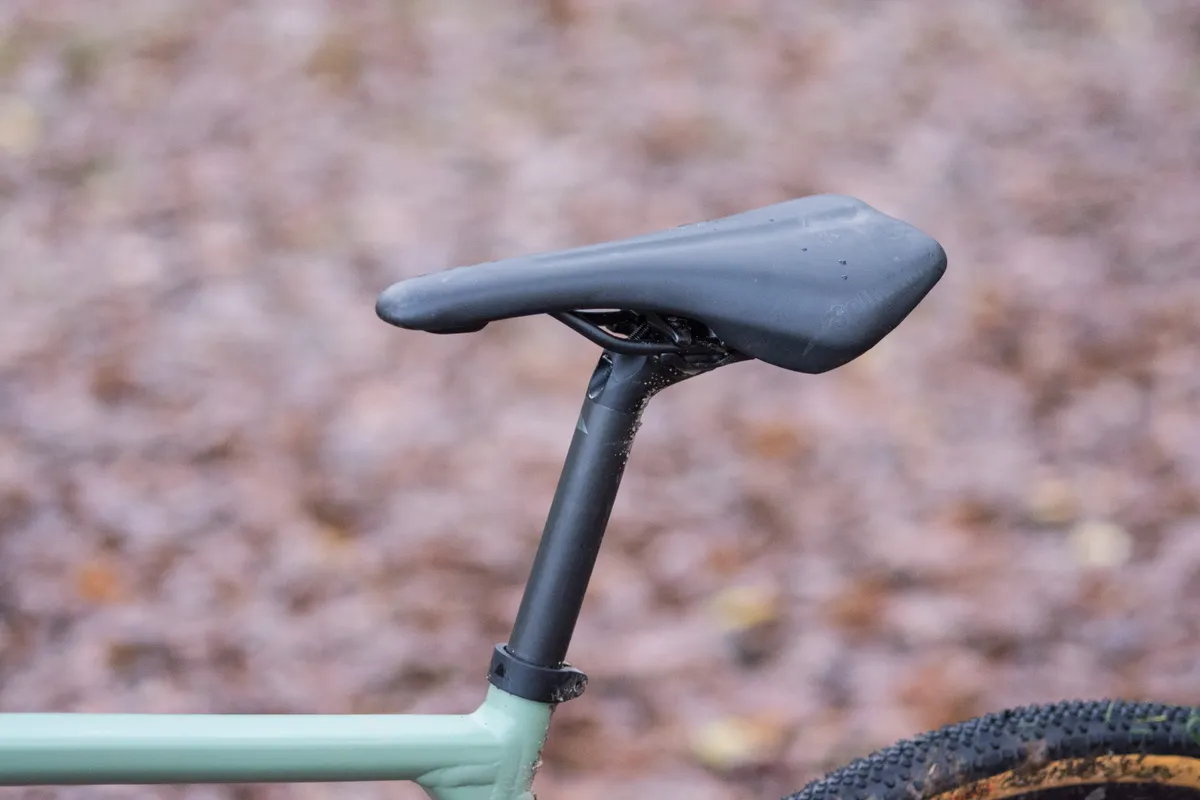
Apart from the Selle Italia X3 saddle, the Grail’s finishing kit is all in-house. Canyon matches that short stem to a relatively wide bar – 44cm on a medium – that has only the tiniest bit of flare.
Riding the Canyon Grail 6
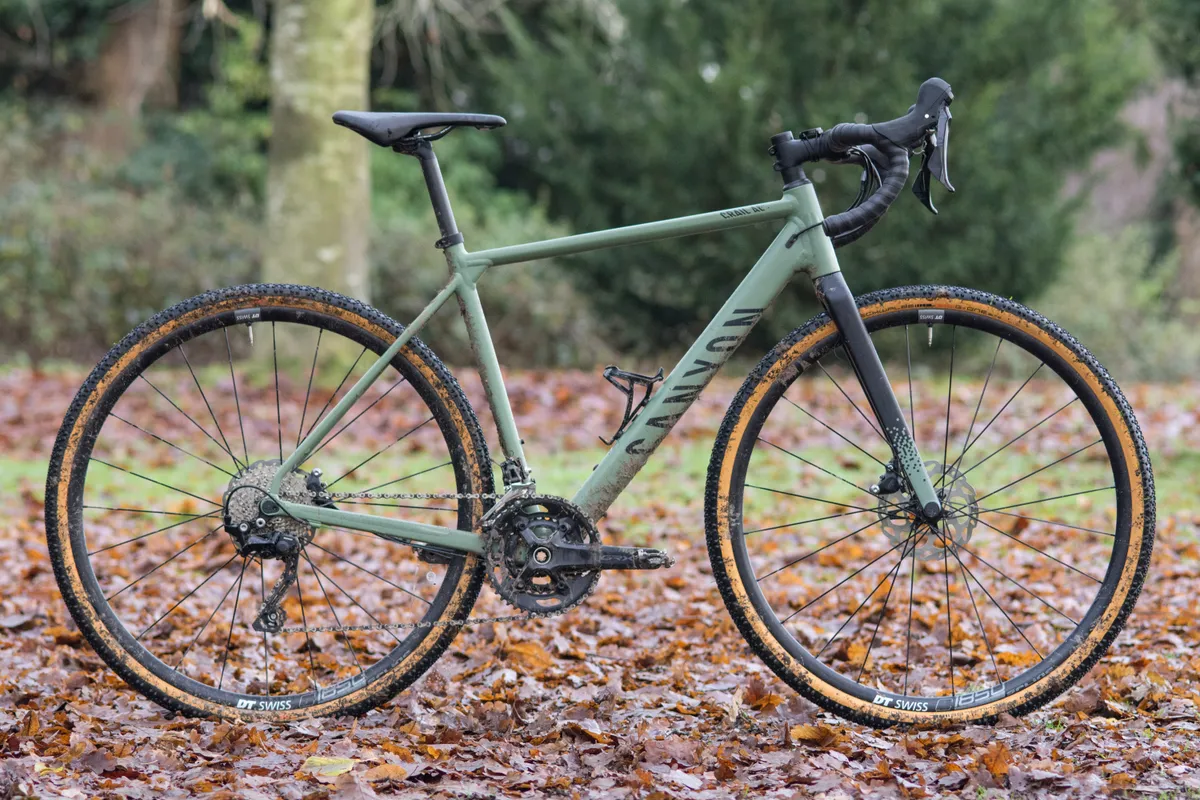
We praised the old Grail AL for its versatility on and off tarmac and, rack mounts aside, it’s even better now thanks to gearing that’s better suited to gravel, while not overly compromised for the road.
I took the Grail 6 on rides that mixed up road, fire road, gravel, mud and singletrack, and loved it all.
The bike doesn’t have any flexible-frame wizardry and it’s certainly not as squishy as the more expensive Grail CF, so you will fatigue faster on rough surfaces.
It’s comfortable enough though and, if you run the tyres tubeless (which is how I tested the bike), you can safely run low pressures and let them take the edge off.
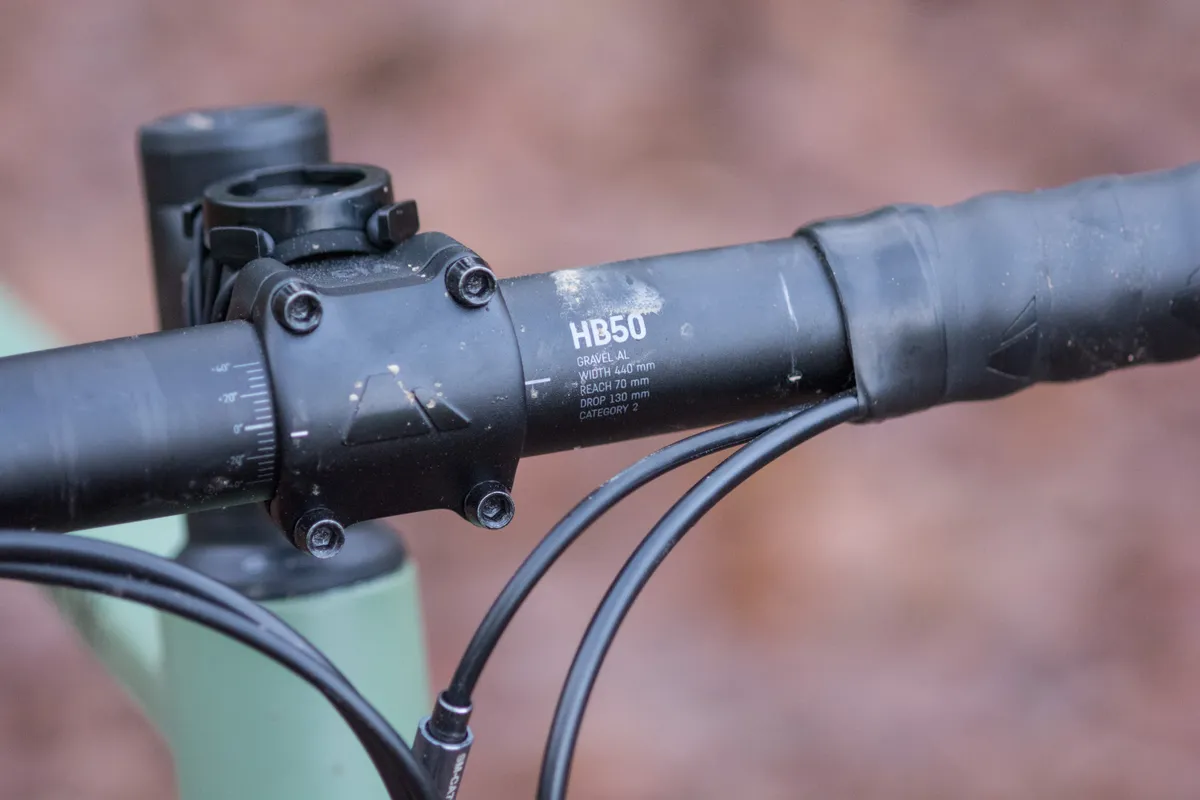
The bike’s long reach, short stem and moderately wide bar combine to give confidence-inspiring handling in typical gravel riding conditions.
It’s obviously no mountain bike, but it’s well suited to blasting around fire roads and dipping into the odd bit of singletrack, as long as it’s not too rocky or rooty.
I wondered if the wide bar would seem ungainly on the road but, while it’s certainly not an aero option, it doesn’t feel extreme, helped by having little flare, unlike many gravel bars.
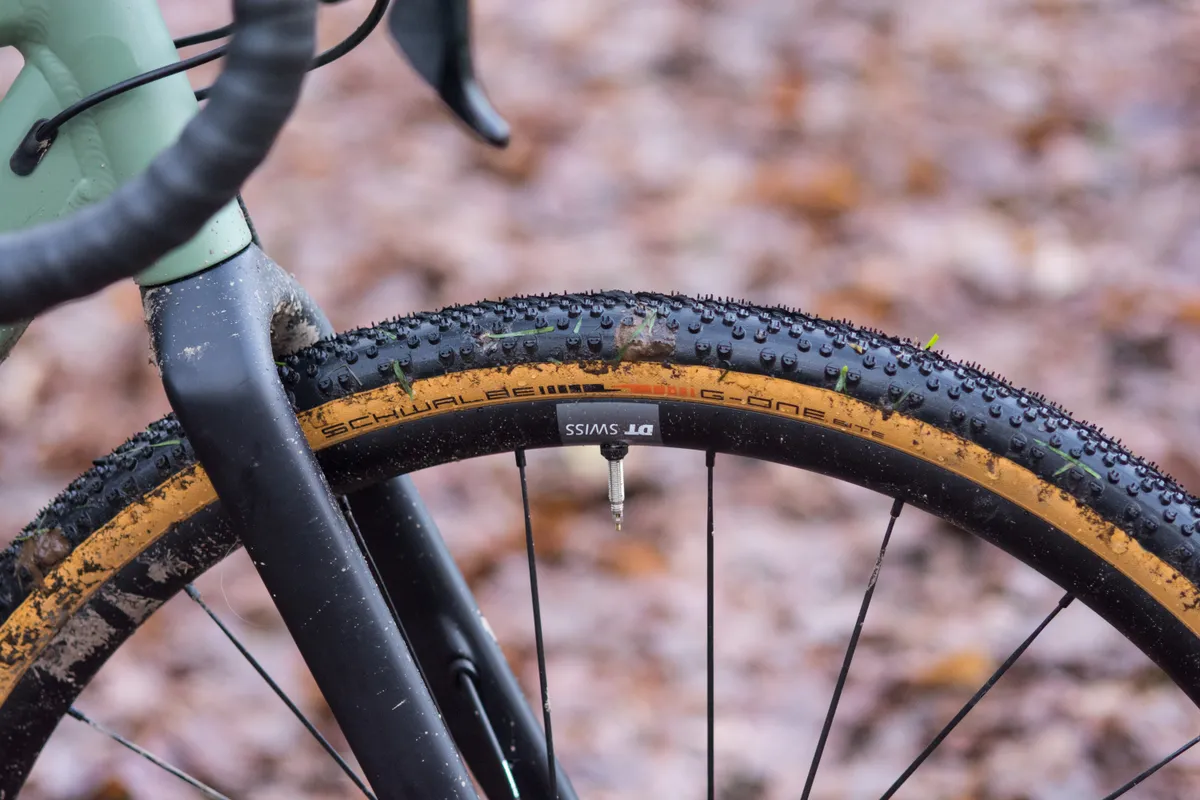
The Schwalbe tyres are a touch slower on the road than the semi-slicks fitted to a lot of gravel bikes – often these have a fully slick centre-tread – but they’re not as draggy and noisy as more aggressive knobblies, and still offer a useful amount of grip on looser, muddier terrain.
Tyre choice is always a trade-off on a gravel bike and no one option does everything well, however the Schwalbes are good enough that I’d happily wear them out rather than immediately seek something more specialised.
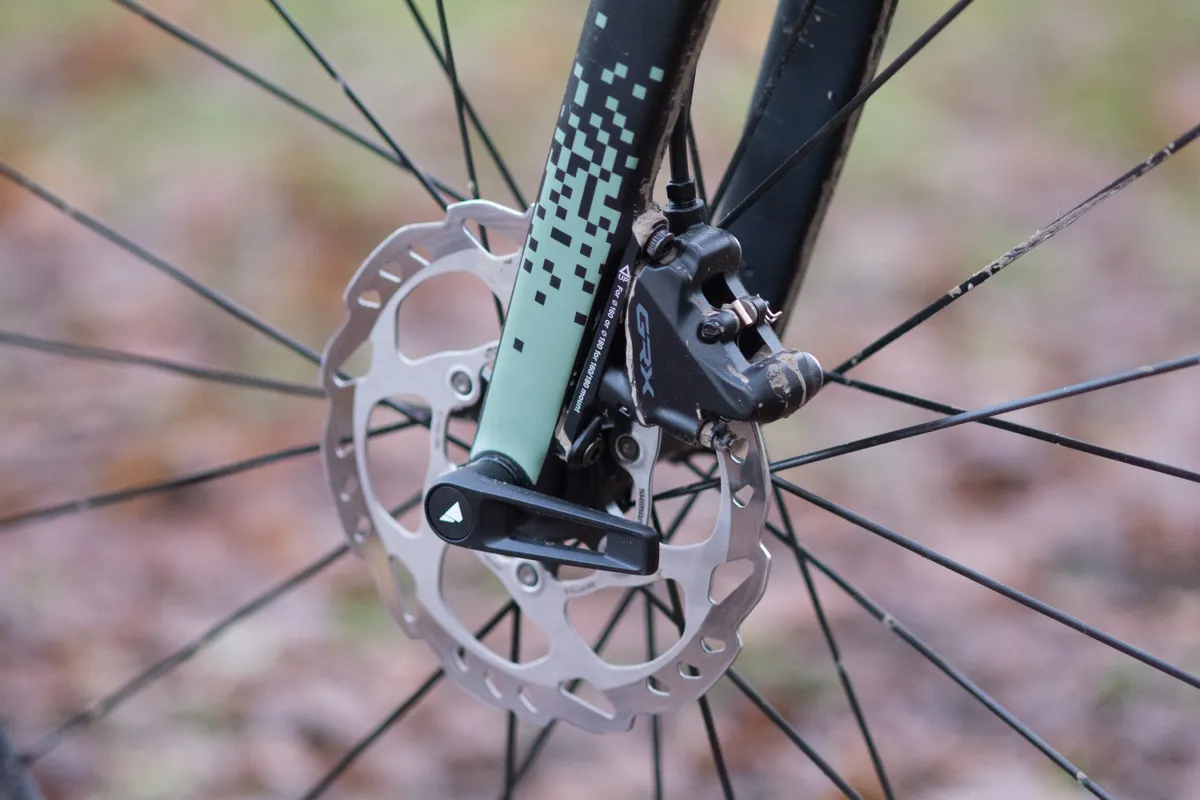
I have nothing but praise for Shimano’s 10-speed GRX components. They’re slightly cheaper looking than their 11-speed counterparts but the shifting and braking is very good and doesn’t leave you wanting.
Canyon Grail 6 overall
On paper, the Grail 6 doesn’t look nearly as good value as its predecessor: it’s £150 £300 more expensive than the Grail AL 7.0 we tested last year, you’re getting one less gear and, yes, it’s a shame the rack mounts have been dropped.
Despite all this, it remains a compelling choice, offering excellent all-round abilities and a spec that’s well thought-out and needs nothing changing out of the box.
When we’re discussing prices, it’s important to acknowledge that they’re rising across the industry, so looking back a year isn’t particularly helpful anyway.
If you’re only going to own one drop-bar bike, the Grail 6 makes a great deal of sense. It’ll do a bit of everything very well and, if you choose to change the tyres, it will work as a pure road bike or a more condition-specific gravel machine.
Product
| Price | 2349.00 AUD,1499.00 EUR,1649.00 GBP |
| Weight | 9.5000, KILOGRAM (Medium) - |
Features
| Fork | Canyon FK0070 CF disc full carbon, 1 1/4in steerer |
| br_stem | Canyon V13 80mm |
| br_chain | Shimano 10-speed |
| br_frame | Canyon Grail AL Disc 6061 aluminium |
| Tyres | Schwalbe G-One Bite 40mm Tubeless Easy |
| br_brakes | Shimano GRX RX400 |
| br_cranks | Shimano RX600 46/30 |
| br_saddle | Selle Italia X3 |
| br_wheels | DT Swiss C 1850 Spline db |
| br_headset | Integrated |
| br_shifter | Shimano GRX RX400 10-speed |
| br_cassette | Shimano HG500 11-34 10-speed |
| br_seatpost | Canyon SP0043 VCLS CF 27.2mm |
| br_gripsTape | Canyon Ergospeed Gel |
| br_handlebar | Canyon HB 0050 Ergobar AL 44cm |
| br_bottomBracket | Shimano press-fit BB86 |
| br_availableSizes | 2XS, XS, S, M, L, XL, 2XL |
| br_rearDerailleur | Shimano GRX RX400 GS |
| br_frontDerailleur | Shimano GRX RX400 |
